
Prophetic Translation
Edinburgh Studies in Modern Arabic Literature
Series Editor: Rasheed El-Enany
Writing Beirut: Mappings of the City in the Modern Arabic Novel
Samira Aghacy
Autobiographical Identities in Contemporary Arab Literature
Valerie Anishchenkova
The Iraqi Novel: Key Writers, Key Texts
Fabio Caiani and Catherine Cobham
Sufism in the Contemporary Arabic Novel
Ziad Elmarsafy
Gender, Nation, and the Arabic Novel: Egypt 18922008
Hoda Elsadda
The Unmaking of the Arab Intellectual: Prophecy, Exile and the Nation
Zeina G. Halabi
Post-War Anglophone Lebanese Fiction: Home Matters in the Diaspora
Syrine Hout
Prophetic Translation: The Making of Modern Eyptian Literature
Maya I. Kesrouany
Nasser in the Egyptian Imaginary
Omar Khalifah
Conspiracy in Modern Egyptian Literature
Benjamin Koerber
War and Occupation in Iraqi Fiction
Ikram Masmoudi
Literary Autobiography and Arab National Struggles
Tahia Abdel Nasser
The Arab Nah ah: The Making of the Intellectual and Humanist Movement
ah: The Making of the Intellectual and Humanist Movement
Abdulrazzak Patel
Sonallah Ibrahim: Rebel with a Pen
Paul Starkey
Minorities in the Contemporary Egyptian Novel
Mary Youssef
edinburghuniversitypress.com/series/smal
Prophetic Translation
The Making of Modern Egyptian Literature
Maya I. Kesrouany

To my mother and father,
Alia and Issam,
for always looking beyond their worlds and encouraging me to venture there.
Edinburgh University Press is one of the leading university presses in the UK. We publish academic books and journals in our selected subject areas across the humanities and social sciences, combining cutting-edge scholarship with high editorial and production values to produce academic works of lasting importance. For more information visit our website: edinburghuniversitypress.com
Maya I. Kesrouany, 2019
Edinburgh University Press Ltd
The Tun Holyrood Road
12 (2f) Jacksons Entry
Edinburgh EH8 8PJ
A CIP record for this book is available from the British Library
ISBN 978 1 4744 0742 7
The right of Maya I. Kesrouany to be identified as author of this work has been asserted in accordance with the Copyright, Designs and Patents Act 1988 and the Copyright and Related Rights Regulations 2003 (SI No. 2498).
Contents
Series Editors Foreword
E dinburgh Studies in Modern Arabic Literature is a new and unique series that will, it is hoped, fill in a glaring gap in scholarship in the field of modern Arabic literature. Its dedication to Arabic literature in the modern period, that is, from the nineteenth century onwards, is what makes it unique among series undertaken by academic publishers in the English-speaking world. Individual books on modern Arabic literature in general or aspects of it have been and continue to be published sporadically. Series on Islamic studies and Arab/Islamic thought and civilisation are not in short supply either in the academic world, but these are far removed from the study of Arabic literature qua literature, that is, imaginative, creative literature as we understand the term when, for instance, we speak of English literature or French literature. Even series labelled Arabic/Middle Eastern Literature make no period distinction, extending their purview from the sixth century to the present, and often including non-Arabic literatures of the region. This series aims to redress the situation by focusing on the Arabic literature and criticism of today, stretching its interest to the earliest beginnings of Arab modernity in the nineteenth century.
The need for such a dedicated series, and generally for the redoubling of scholarly endeavour in researching and introducing modern Arabic literature to the Western reader, has never been stronger. Among activities and events heightening public, let alone academic, interest in all things Arab, and not least Arabic literature, are the significant growth in the last decades of the translation of contemporary Arab authors from all genres, especially fiction, into English; the higher profile of Arabic literature internationally since the award of the Nobel Prize in Literature to Naguib Mahfouz in 1988; the growing number of Arab authors living in the Western diaspora and writing both in English and Arabic; the adoption of such authors and others by mainstream, high-circulation publishers, as opposed to the academic publishers of the past; the establishment of prestigious prizes, such as the International Prize for Arabic Fiction (IPAF) (the Arabic Booker), run by the Man Booker Foundation, which brings huge publicity to the shortlist and winner every year, as well as translation contracts into English and other languages; and, very recently, the events of the Arab Spring. It is therefore part of the ambition of this series that it will increasingly address a wider reading public beyond its natural territory of students and researchers in Arabic and world literature. Nor indeed is the academic readership of the series expected to be confined to specialists in literature in the light of the growing trend for interdisciplinarity, which increasingly sees scholars crossing field boundaries in their research tools and coming up with findings that equally cross discipline borders in their appeal.
There is no shortage of studies that make a link between the rising national consciousness and resistance to British colonial rule in Egypt in the early decades of the twentieth century on the one hand, and the emergence of new narrative genres in Arabic literature, particularly the novel, on the other. The novel as literary form offered itself to writers as an ideal vehicle for giving voice to a new-found sense of national identity previously overshadowed by the pan-Islamic identity of the Ottoman caliphate and later the hegemony of foreign colonial powers. But intellectual endeavour to forge, or perhaps more accurately to articulate, an Egyptian identity was not limited to the writing of novels. That endeavour naturally took many other forms, of which one (perhaps not entirely unrelated to writing novels) was translation of fiction and non-fiction from European languages, especially French and English. Interestingly, some of those very translators also wrote their own novels as well as non-fiction works, while some were even directly involved in the political and not only intellectual life of the country. It is not therefore inconceivable that whatever grand national project or quest motivated their novel writing and/or political pursuits also motivated their translations: the choices of authors and texts that they translate and the political and social thought they contain and its relevance to Egyptian reality at the time. In a time of social and political transformation, it is not inconceivable either that the strategies adopted in translation and adaptation and the degree of faithfulness to the original were also dictated consciously or unconsciously by the same ulterior motives that lay behind the writing of novels. Important as the subject is, studies of the phenomenon have been scarce. Whereas critics and scholars have for decades devoted a fair amount of attention to researching the early Egyptian novel in relation to rising national consciousness and the birth of the nation-state, they have been less forthcoming on the matter of the many concomitant translations of the same period.
Next page
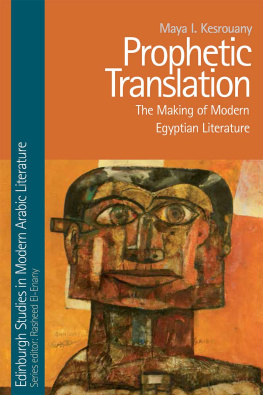

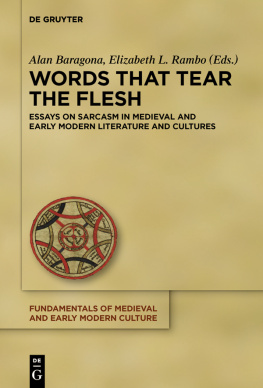
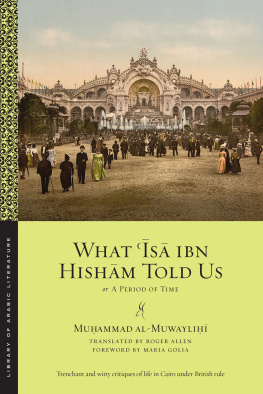
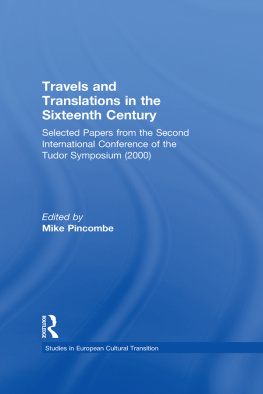
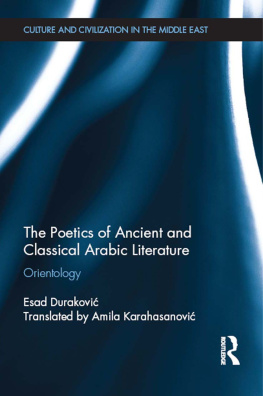
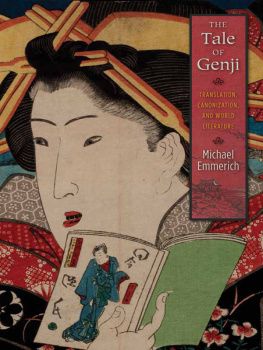
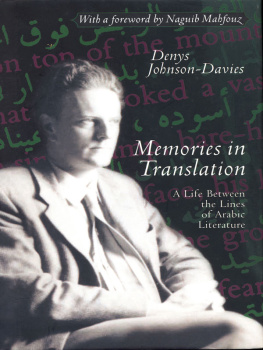

 ah: The Making of the Intellectual and Humanist Movement
ah: The Making of the Intellectual and Humanist Movement